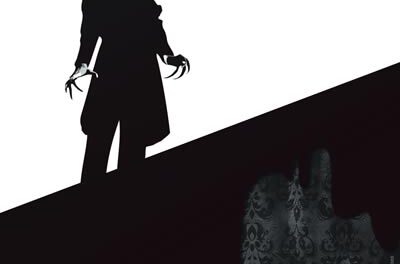North Carolina Opera presented Hercules vs Vampires at Meymandi Concert Hall! What, you ask, was that? Well, it was good music. It was fun. And it was opera with a different twist.
Take one campy B-grade hero sword-and-sandals movie from the 1960’s; add one clever composer who knows his craft well and is eager to try new things; add an orchestra of outstanding musicians who are led by a conductor who is equally committed to new music and experimental approaches; add nine talented and accomplished vocal artists: and what you get is Hercules vs Vampires.
The movie that was projected on the screen above the performer’s heads was Hercules at the Center of the Earth (Ercole al Centro della Terra), a low-budget Italian production starring Christopher Lee and the bodybuilder Reg Park, and directed by Mario Bava. In its USA release in 1961 it was re-titled Hercules in the Haunted World. While not intentionally a spoof of the sword-and-sandals genre, there are plenty of elements that provoke chuckles and even a few belly laughs. Ridiculous special effects like Hercules tying a vine around a rock that looks like it could weigh well over a ton, twirling it around his head, and hurling it sling-shot-style at the evil King Lico; or breaking off stone pillars and tossing them at the evil undead in Hades; no audience in the Star Wars era is convinced by the papier-mâché (or styrofoam) props. Theseus absurdly declaring his undying love for Persephone just seconds after he first encounters her, generally poor acting, abrupt scene changes and inconsistencies, and other elements, all made it clear there was insufficient budgeting for film editing. The storyline also plays fast and loose with the mythological tales of Hercules and other heroes.
Never-the-less, the movie has fantastic aspects. Filmed in early-1960s Technicolor, it is action-packed and wildly operatic in scope. It follows Hercules on a heroic journey to Hades and back to rescue his beloved from the fiendishly evil Lico who is a vampire who wants to drink her blood. All it needed was a brilliantly talented composer to make it into an opera!
Enter L.A.-based composer Patrick Morganelli, an experienced Hollywood film composer and master of his craft. The concept is to show the film with English sub-titles, added vocal music synced (more or less) with lip movement of the characters in the film, and flamboyant, virtually wall-to-wall, orchestral music reflecting and enhancing the action. The score was pleasant listening. Being Hollywood, it included such Wagnerian clichés as minor seconds or major sevenths to indicate tension or fears or spooky scenes, diminished seventh chords to provide continuity in key and mood shifts, and, of course, leitmotifs. In other words, the score was rich in harmony, clever in melodic line and rhythmic presentation, and especially brilliant in orchestration.
However, accomplishing all this was not an easy undertaking. For those interested in the process Morganelli went through to accomplish this daunting task, there is an excellent interview from Opera News available on the internet.
A major task for the orchestra, vocalists, and conductor was to keep the music in sync with the film action and the sung text in touch with the lip movements of the on-film actors. There were specially designed electronic devices to assist in this, and it was accomplished remarkably from opening credits (which were dubbed in and nicely done) to the end. Conductor Shawn Galvin, who has worked with NC Opera on a number of previous projects, firmly held to the necessary tempi and guided the orchestra through heroic and epic scenarios. The 26-piece orchestra produced thrilling sounds with the three French horns doing yeoman’s work as the only brass on stage.
The nine singers were equally outstanding in the roles assigned to them. They seemed to relish the medium and produced dramatic and winsome sounds. Andrea Edith Moore sang Dianara, Hesperide 1, City Woman, and Peasant Woman; Vanessa Becerra was Medea, Zarathusa, Chained Woman and Helena; Martha Anderson sang Persephone; Scott MacLeod was featured as Hercules and matched the brawn of the actor on screen with his rich and powerful voice; Ted Federle was Theseus, Hercules’ side-kick; Adrian Smith was Lycos; Eugene Galvin, who sang with impressively clear English diction, portrayed God of Evil and Procrustes; Timothy Sparks sang the roles of Kyros, Peasant Man and Henchman; and John Cashwell was Telemachus, Palace Attendant and City Man.
The world premiere of Hercules vs Vampires was at Opera Theater Oregon, Portland in March, 2010. In 2015 it was seen in four performances at Los Angeles Opera with a larger orchestra. Morganelli was most pleased to bring his work to Raleigh and by the high quality of performance it received here.
Grand opera it was not, but it was entertaining for sure and it was fun. It would be a lovely date-night movie/opera. It might even develop into a cult-classic given the opportunity. Oh well, perhaps that’s enough fantasy for one review.











